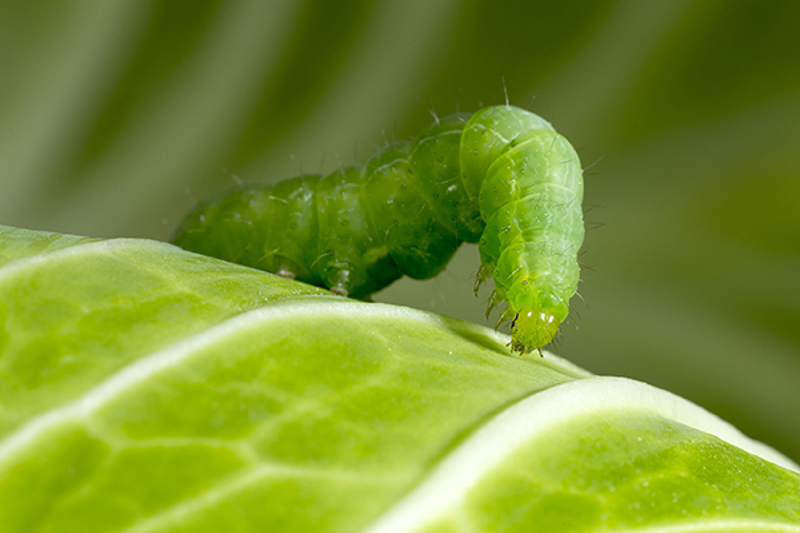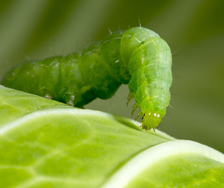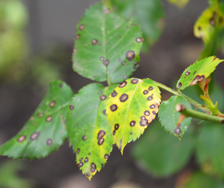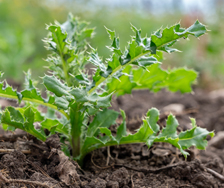Yates Account
Join now
Create a Yates account today!
Sign up to join the Yates Garden Club for monthly e-mails packed with seasonal inspiration, tips for success & exclusive promotions.
Plus if you’re a Garden Club member you can take part in the Yates Growing Community - a blog to share successes, get advice & win prizes in fun challenges along the way!

Forgot password
Enter the email address associated with your account, and we'll email you a new password.

Organic Caterpillar Control
As spring begins to warm up the garden, pressure from destructive caterpillars begins to ramp up. Although they are at th
eir peak in summer, they are already lurking around in spring - their life cycle moves a bit slower, but they are still active. Even the smallest of caterpillars can chew through mountains of foliage and left unchecked can result in heartbreaking skeletonised leaves and ruined flowers.
Organic gardeners can easily control these hungry caterpillars by spraying vegies, fruit, flowers and shrubs each week with Yates Nature’s Way Citrus, Vegie Ornamental Spray Ready to Use. It contains natural pyrethrin from the pyrethrum daisy, and canola oil, for dual action insect control. Spray leaves thoroughly, including the undersides, as this is where caterpillars often hide.
Yates Nature’s Way Citrus, Vegie & Ornamental Insect Spray is BioGro certified for use in organic gardens, and has a one day withholding period.

Spring Scale Control
The nutritious sap that flows through plants during the Spring growth flush is irresistible to sap sucking scale. Scale can be white, brown, pink or black and appear as raised bumps on leaves and stems.
Symptoms of a scale infestation include:
-
Small yellow spots appearing on leaves, which indicate the position of scale feeding on the underside of the leaves.
-
Ants running up and down plants. Ants are attracted to the sticky honeydew that scale excrete.
-
Sooty mould, which is a disease that looks like a dark grey covering of ash over leaves and stems. Sooty mould grows on the honeydew produced by the scale insects
Scale can be controlled with regular sprays of Yates Conqueror Spraying Oil. Once the scale insects are controlled, there will be no more honeydew and the ants and sooty mould will disappear. Dead scale may remain on the plant for a few weeks after spraying.
Yates Conqueror Spraying Oil is certified for use in organic gardening by BioGro NZ, so is ideal for people wanting to use organic methods of pest control in their gardens.
Yates Conqueror Spraying Oil also controls other common insect pests, including:
-
Aphids, mealybug and European red mite on roses and ornamental plants.
-
Aphids and citrus red mite on citrus.
-
Aphids and European red mite on apples, pears and stone fruit during winter dormancy.

See Off Greedy Insects
The Spring frenzy of fresh new leaf growth and flowers can attract a multitude of sucking and chewing insect pests that want to feast on your garden.
Insects like aphids, (pictured) mealybug, thrips and whiteflies feed on sweet, sugary plant sap. This depletes important nutrients from the plants, but can also causes leaves to permanently discolour and distort. Sap sucking insects can also transmit plant viruses. To add insult to injury, these insects excrete a sweet substance called honeydew, which gives unsightly sooty mould a foothold to spread. Sooty mould appears as a dark grey or black ash like covering over leaves and stems. Honeydew will also attract ants, which you can often see travelling up and down plant stems.
Ornamental shrubs and trees like roses, hibiscus, camellias, azaleas, gardenias and fuchsias, as well as annual flowers like petunias and marigolds can be susceptible to damage from sucking and chewing insect pests. Vegetables are especially attractive to insect pests, all eager to taste your precious home-grown harvest.
Sometimes it’s hard to know which insect is causing the damage – so it’s handy to have a spray which will control a wide range of pests. Yates Nature’s Way Organic Citrus, Vegie Ornamental Spray Ready to Use will control many of the most common garden insect pests on ornamental plants, fruit trees and vegetables, including aphids, mealybug, caterpillars, thrips, mites and whitefly. Spray the foliage thoroughly when insect pests are seen, including underneath the leaves where insects hide. Respray weekly if required.















Share
Share this article on social media